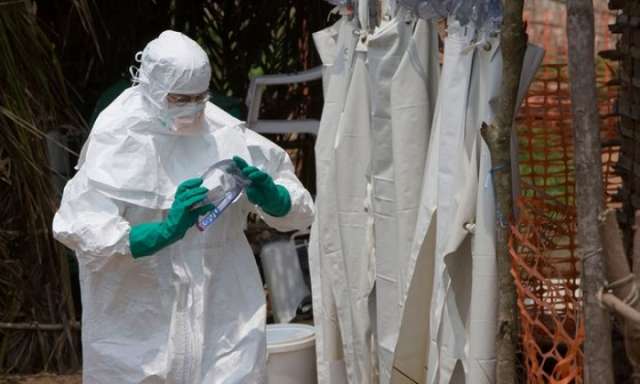The country's Ministry of Health announced on Wednesday that a cluster of Ebola virus cases has been detected in North Kivu, a province in eastern Congo that shares borders with Rwanda and Uganda.
The Ministry of Health informed the World Health Organization that four out of six samples in the cluster tested positive for Ebola in preliminary lab results.
Additional testing is ongoing, according to WHO.
These new cases have emerged just about a week after the government of Congo declared that a recent ravaging Ebola outbreak was over. That recent outbreak was the country's ninth on record since the virus was first discovered in 1976.
Ebola remains a constant threat in Congo, WHO Director-General Dr. Tedros Adhanom Ghebreyesussaid in a news release Wednesday.
"What adds to our confidence in the country's ability to respond is the transparency they have displayed once again. Working closely with the Ministry of Health and partners, we will fight this one as we did the last," he said.
The majority of cases in the cluster are in an area about 30 kilometers outside of the city of Beni located in North Kivu, where there is a large amount of movement between the borders of Congo, Rwanda and Uganda, due to trade activities, according to WHO.
WHO plans to work with neighboring countries to make sure health authorities are prepared to respond to more cases or even possibly another outbreak.
The rare and deadly Ebola virus disease causes symptoms including fever, severe headache, muscle pain, weakness, fatigue, diarrhea, vomiting, stomach pain, and unexplained bleeding.
Scientists think the virus initially infected humansthrough contact with an infected animal, such as a bat, and then the virus spread from person to person.
The virus spreads between humans by direct contact with an infected person's bodily fluids, including blood, semen, urine, saliva, sweat, feces, vomit and breast milk. The virus also can spread through direct contact with contaminated objects, such as needles and syringes.
Ebola was discovered in 1976 near the Ebola River in the Democratic Republic of Congo. The largest and deadliest outbreak on record was the 2014 to 2016 outbreak in West Africa, which claimed the lives of more than 11,000 people.
The response to contain the most recent outbreak involved the use of an experimental vaccine and tracking contacts of cases. In the recent outbreak, investigational Ebola drugs were approved for use and kept on site.
Dr. Matshidiso Moeti, WHO regional director for Africa, said in the same news release that the organization plans to keep the staff and equipment that responded to the most recent outbreak in Congo in place.
"This allows us to have a head start in response to this cluster," she said.
CNN
More about: Ebola
















































